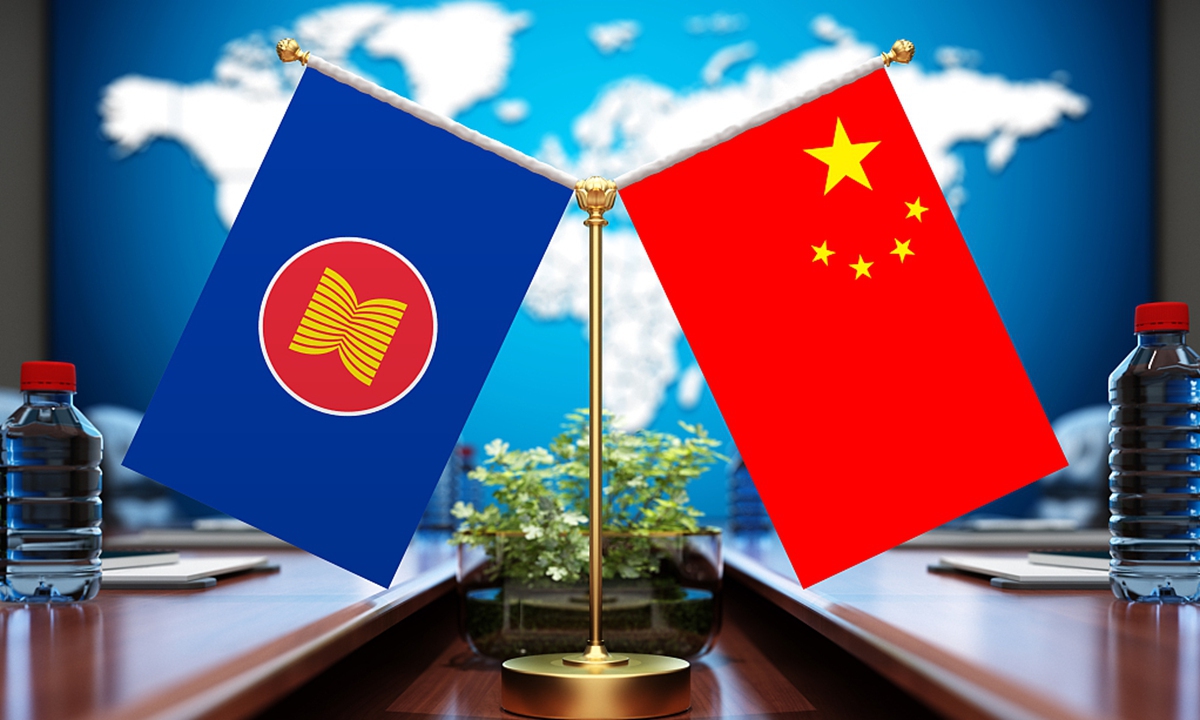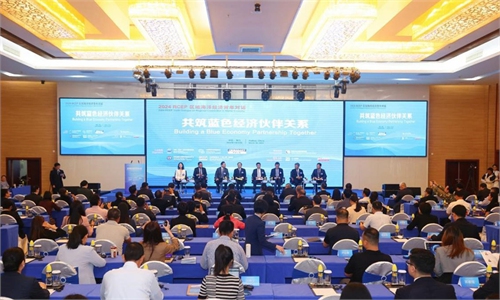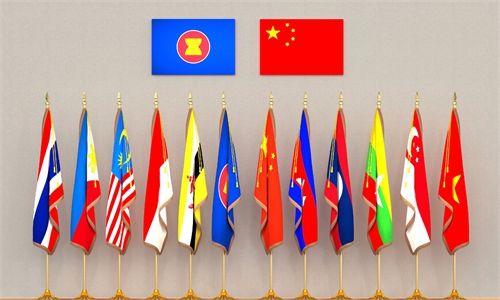ASEAN dignitaries' intensive visits to China highlight undertones of regional stability: Global Times editorial

Photo: VCG
A wave of visits to China can be witnessed among ASEAN countries. Indonesia's president-elect Prabowo Subianto made his first overseas visit to China after he secured a victory in the presidential election, and both sides agreed to promote the comprehensive and high-quality development of bilateral relations. This is followed by the separate visits to China by Deputy Prime Minister and Minister of Foreign Affairs of Laos Saleumxay Kommasith, Minister of Foreign Affairs of Vietnam Bui Thanh Son, and Minister of Foreign Affairs and Cooperation of Timor-Leste Bendito dos Santos Freitas from Tuesday to Friday. This is not only a true reflection of China-ASEAN relations getting closer, but also a vivid practice of regional countries yearning for peace and seeking development.Seventy years ago, China and Southeast Asian countries held high the Five Principles of Peaceful Coexistence, laying a solid foundation for regional peace, stability and economic prosperity. Over the past 70 years, guided by the Five Principles of Peaceful Coexistence, China has been continuously deepening political exchanges, economic and trade cooperation, humanistic exchanges with these countries, and striving to jointly build the Belt and Road Initiative (BRI) and a community of shared future. It has been actively promoting its relations with ASEAN to reach new heights one after another.
From a broader perspective, China and ASEAN have become an important force in maintaining regional peace and stability as well as international justice, as their bilateral and multilateral communication mechanisms have been increasingly enhanced and the two sides have reached more and more consensus on regional and international hotspot issues. This has not only consolidated the foundation of mutual trust in the relations between the two sides, but also provided a strong guarantee for building a China-ASEAN community with a shared future.
Economically, China and ASEAN stand as each other's largest trading partner. In 2023, bilateral trade continued to grow, reaching 6.41 trillion yuan ($0.89 trillion). ASEAN has been China's largest trading partner for four consecutive years, while China has also been ASEAN's largest trading partner for several years. By July 2023, the two-way cumulative investment surpassed $380 billion, and China has established more than 6,500 direct investment enterprises in ASEAN countries. Major infrastructure projects such as the Jakarta-Bandung High-Speed Railway and the China-Laos Railway have become the "gilded signboard" of China-ASEAN cooperation and have benefited people along the route.
Against the backdrop of "fierce competition with China" pushed by the US, some Western countries have aired a twisted view of "de-Sinicizing" the production and supply chain, but the cooperation between China and ASEAN countries in this area hasn't seen "decoupling;" on the contrary, the two sides are deeply embedded in each other, embarking on a new path of integrated development. In 2023, China's imports and exports of intermediate goods with ASEAN reached 4.13 trillion yuan ($570 billion). ASEAN has remained China's largest trading partner for intermediate goods for many consecutive years. The two sides have deepened cooperation in energy, electronics, agricultural products and other industries.
With the in-depth implementation of the BRI and the gradual advancement of the building of the community of shared future, China and ASEAN countries have been promoting people-to-people exchanges. Especially since the beginning of this year, China and a number of ASEAN countries have realized mutual visa exemption, making people-to-people exchanges more frequent and convenient and increasing the mutual goodwill between the two sides.
According to the State of Southeast Asia 2024 Survey Report, compiled by the ISEAS-Yusof Ishak Institute based in Singapore, China continues to be regarded as the most influential country in Southeast Asia economically and politically. The majority of respondents believe that Southeast Asian countries' relationship with China is improving, while confidence in the US as a strategic partner and provider of regional security has declined significantly. More than half of the respondents chose China when asked if ASEAN was forced to align itself with either China or the US. This is the first time more people in Southeast Asia have preferred China over the US since the ISEAS-Yusof Ishak Institute began the survey in 2019.
The results of this survey also highlight the truth proven by 70 years of practice: Only through peaceful coexistence can there be lasting prosperity; only through frank and sincere treatment of each other can there be long-lasting friendship; only through mutual assistance can there be win-win cooperation.
As President Xi Jinping pointed out during his meeting with Prabowo, the key to successful China-Indonesia relations is to adhere to strategic independence, mutual trust and mutual assistance, win-win cooperation, and fairness and justice.
The current China-ASEAN relations especially need the leadership of top leaders and policymakers. On the one hand, some forces in the West make a big fuss about a new cold war, engage in geopolitical confrontation, and attempt to push Southeast Asia into a cold war-style whirlpool. As a result, the regional countries are facing the choice of where to go and what to do. On the other hand, certain ASEAN countries have been deluded by external forces, allowing themselves to be manipulated, insisting on stirring up trouble in the South China Sea, artificially exacerbating regional tensions, and attempting to incite other countries in the region to join in the chaos.
At this critical moment, the intensive visits to China by important figures from ASEAN countries are a practical demonstration of saying no to bloc confrontation. At the same time, they have made a wise choice in line with the historical trend.
Hopefully, more countries in the region will join the family of maintaining peace and stability and together promote greater achievements in China-ASEAN relations. We also sincerely look forward to continuing joining hands with ASEAN countries, taking the opportunity of the 70th anniversary of the Five Principles of Peaceful Coexistence this year to vigorously carry forward the Bandung Spirit that calls for solidarity, friendship and cooperation, to eliminate external interference, enhance solidarity and cooperation, safeguard peace and tranquility and provide more positive energy and stability to the region and the world.


